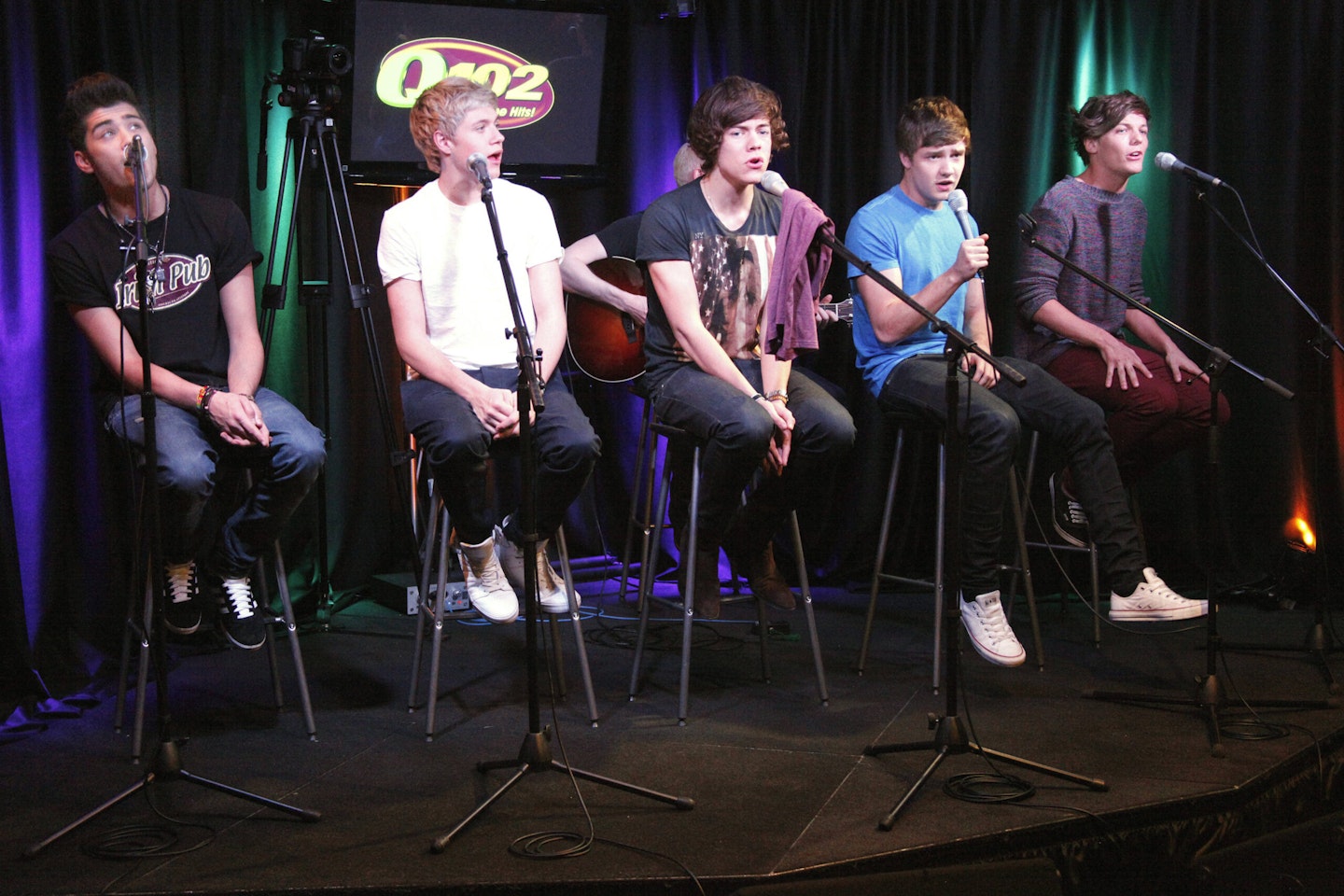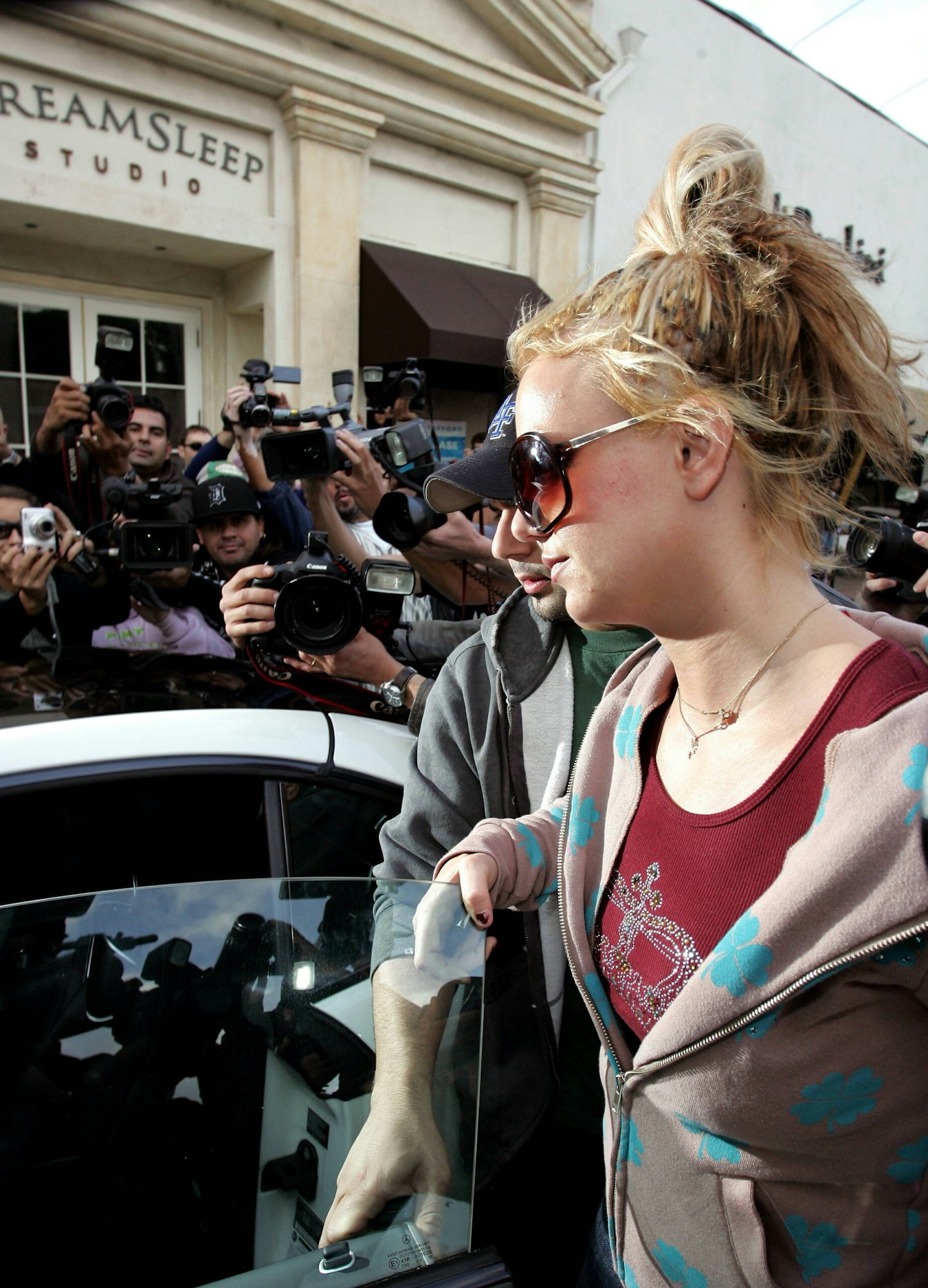If the ubiquity of nepo babies teaches us anything, it’s that a lot of famous people have always been surrounded by fame. That doesn’t necessarily mean they are better equipped to handle it, but at least they know what it looks like – warts and all. But what about those who are plucked from obscurity as children and handed unrelenting global stardom on a plate, almost overnight?
Former One Direction singer Liam Payne’s tragic and untimely death – falling from the third floor of a hotel in Buenos Aires under the influence of drugs and alcohol – at the age of 31 is an urgent reminder that the influence of fame at an early age can cause untold damage to a young persons psyche, so much so Sharon Osbourne has called out the music industry as a whole in her tribute to him. 'Liam, my heart aches. We all let you down,' she wrote on Instagram. 'Where was this industry when you needed them? You were just a kid when you entered one of the toughest industries in the world. Who was in your corner? Rest in peace my friend.'
When Liam queued up to audition for The X Factor, for the first time at the age of 14 in 2008 and then again at 16 in 2010, he was just a regular teenage boy from Wolverhampton. He was turned away at judge’s houses the first time and returned two years later with a new sense of resolve. His audition with Michael Bublé’s cover of ‘Cry Me A River’ earned him four yeses and a standing ovation from Simon Cowell. He was later rejected as a solo artist but invited back to form one fifth of the global pop sensation, One Direction – one of the best-selling boybands of all time.

That’s the dream they pedal on the show – a normal boy with a great voice can become a global superstar. They sell the idea of fame, fortune, fans, girls queuing outside your hotel rooms for pictures, number one albums, stadium tours, access to pretty much anything you want whenever you want it – even to your detriment. That’s exactly what One Direction had, in abundance, from 2010 to 2016.
What’s missing from the so-called dream of fame is the warning of the immeasurable toll it can have on your mental wellbeing, your ability to make sensible decisions, your family, your friends, your private and public relationships, your sense of self, privacy and health at large.
People venerate Amy Winehouse, the daughter of a taxi driver and a pharmacist, who was only 20 years old when she released her first album Frank. Seven years later, she perished at the hands of the music industry and died from alcohol poisoning after suffering with substance abuse, mental illness and addiction throughout her life. Amy remains one of the most respected musicians in the world, it’s a shame she wasn’t always respected while she was alive. The gift of her music cost her her life.
Britney Spears was a 12-year-old from Louisiana when she joined The All-New Mickey Mouse Club in 1993. She was 17 when she released her first single ‘Baby One More Time’. She was 25 when she had her first public mental breakdown. She was 26 when she was placed under a conservatorship granting her father full control of almost every aspect of her life, including her finances, her personal life and her ability to make any of her own decisions.
Now, at 42, Britney’s erratic social media presence and estranged relationships with members of her family are worrying signs. It’s likely that people in every country around the world know her name, love her music, and would be devastated if something happened to her. And yet, the show goes on.

Scouted from a YouTube video at the age of 13, Justin Bieber has spoken openly about the toll of child stardom and the way it’s impacted his life. In 2019, he posted a long statement on Instagram documenting his supposed fall from grace. He wrote, ‘By 20, I made every bad decision you could have thought of and went from one of the most loved and adored people in the world to the most ridiculed, judged and hated person in the world.’ The singer finished his post by writing, ‘all this to say even when the odds are against you keep fighting.’
This brief insight into his world shows us that the man who has everything on paper still feels the odds are stacked against him. Is it not possible, then, that we collectively and repeatedly underestimate the weight of fame? Humans have not evolved to experience the level of adoration, expectation and judgement that comes with being a global icon. They are also not perfect – nor should we expect them to be.
The silver lining, if there is one, is that some contemporary music artists are beginning to reject this template as inevitable. Billie Eilish, for her part, has made a conscious effort to wear baggy clothes to avoid body shaming, knowing that for better or for worse she is admired by impressionable teenage girls. Her social media presence is used strictly to promote her work and causes she cares about, and her music reflects her refusal to compromise her artistic integrity or avoid subjects, like gay sex, that some people have deemed too explicit for teenage listeners.
However, in conversation with Lana Del Rey for Interview magazine, she said growing up in front of the world and needing to explain herself all the time has been ‘frustrating’ and gives her ‘a lot of anxiety’. ‘I’m like, “Dude, imagine everyone in the world heard a rumour about you and it’s either not true or it’s explained out of context.” And my want and need to explain myself, I have found to be extremely damaging to my life and my sense of self.’
Even with safety measures in place and a strong head on her shoulders, Billie is unable to navigate fame unscathed. Who is?
Then there’s today’s anti-fame flag bearer, Chappell Roan. She has described fame as ‘abusive’ and ‘like going through puberty’ and said it's similar to being with an ex-husband who stalks you, harasses you online and yells at you in public. Her stance has proven to be divisive – perhaps that’s because people are uncomfortable with her honesty. She’s been decried for being ‘ungrateful’ and told it’s ‘jarring to hear from someone in her position’.
Let’s remember, this year Chappell’s monthly listeners on Spotify have gone from 2.7 million to 82.6 million. To say she has skyrocketed would be an understatement. Chappell clearly wants to make music and understands that success comes with fame, but she point black rejects the idea that her life now belongs to other people. For this, she is a beacon of hope, and we should hope other artists follow suit.
Fame, in many ways, is a sinister cultural phenomenon. We allow people to become commodities and feel entitled to them. There have always been die-hard fans, greedy music executives and exploitative managers, but the scale is only getting larger and more dangerous.
It says a lot that when Simon Cowell was asked if he had any regrets on The Diary Of A CEO podcast in June, he said that he wishes he owned the name ‘One Direction’. Why? So he ‘could have made an animation or whatever’.
Yes, it’s time for fans to adjust their relationships with revered (or ridiculed) icons and remember that they are just people. But, more importantly, it’s time for those with real power – who treat young stars like products in a toy factory and want to flog them while they’re valuable and discard them when they’re not – to interrogate their moral compasses.
We should never accept the death of a young star as standard procedure.
Nikki Peach is a writer at Grazia UK, working across pop culture, TV and news. She has also written for the i, i-D and the New Statesman Media Group and covers all things TV for Grazia (treating high and lowbrow shows with equal respect).
